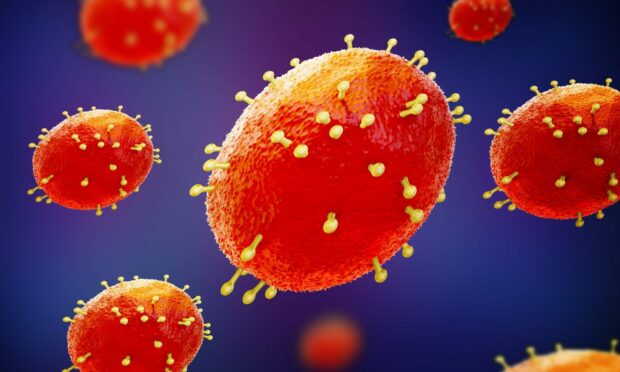Last Monday Scotland announced its first confirmed case of monkeypox.
In the week that has followed how much has the situation changed?
What does the picture look like in Scotland, the UK and the rest of the world?
And just how worried about monkeypox should we be?
We’re answering all your questions about the new virus.
What is the current situation in Scotland?
On May 26 Public Health Scotland (PHS) announced two further cases of monkeypox have been confirmed in Scotland.
This brings the total number to three.
The first was found in the country four days earlier, on May 23.
Speaking last week, health secretary Humza Yousaf said: “Of course, there is concern whenever there is an infection or virus in the country – but we’re not alarmed and that’s the key message.
“We know that monkeypox has been around for many years and there’s established treatments.
“We know there’s established infection prevention control measures in place for monkeypox.
“So when cases are being identified, and it’s not a surprise to me that there have been more and I suspect more will continue in the weeks ahead, we have robust procedures in place so people shouldn’t be overly alarmed, by any stretch of the imagination.”
What about the UK?
In England 101 cases of the illness have been confirmed by the UK Government.
Meanwhile, Wales and Northern Ireland have confirmed one case each.
And with the three cases in Scotland, that means the UK as a whole has 106 confirmed cases.
On May 20 there were 20 confirmed cases in the UK.
What is the global situation?
As of May 26, there are 435 confirmed cases of monkeypox globally.
Cases have been found in Australia, Canada, Denmark, Italy, The Netherlands and Sweden, as well as other countries in Europe and further afield.
On May 20 93 cases globally had been detected.
How worried about the virus should we be in Scotland?
Dr Nick Phin, director of public health science and medical director at PHS, explains: “PHS is working with NHS Boards and wider partners in Scotland and the UK to investigate the source of these infections.
“We have well established and robust infection control procedures for dealing with such cases of infectious disease and these are being strictly followed.
“The overall risk to the general public is low.
“Anyone with an unusual blister-like rash or small number of blister-like sores on any part of their body, including their genital area, should avoid close contact with others and seek medical advice if they have any concerns.”













Conversation